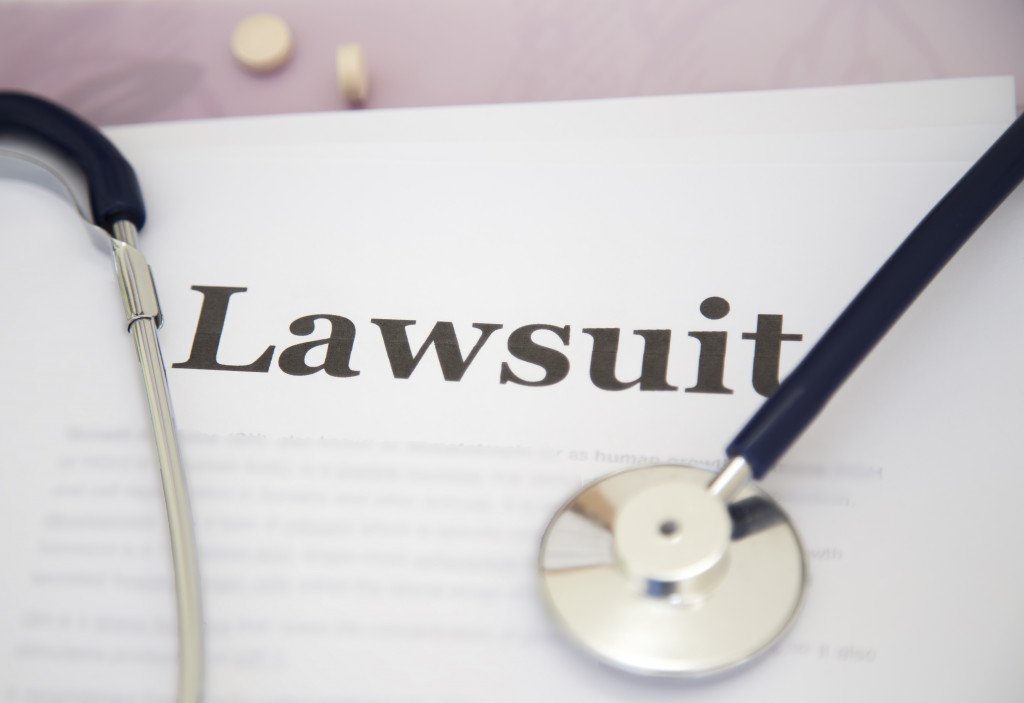Disclaimer: This website provides health information for educational purposes only and is not a substitute for professional medical advice, diagnosis, or treatment. Always seek the guidance of a qualified healthcare provider with any questions you may have.
In any medical practice, knowing the medico-legal risks associated with your clinical decisions and how to minimize them is essential. Medical negligence claims can be costly financially and emotionally, so it is important to do everything you can to avoid them. This blog post will explore tips on preventing medico-legal issues in clinical practice. So let’s dive in!
- 1. Get Informed Consent from Your Patients
- 2. Keep Accurate and Up-to-Date Records
- 3. Communicate Effectively with Your Patients and Colleagues
- 4. Avoid Internal Disputes
- 5. Stay Up-to-Date on Current Standards and Guidelines
- 6. Seek Legal Guidance and Consultation
- Bonus Tip: Keep Your License and Professional Credentials Up-to-Date
1. Get Informed Consent from Your Patients
Before you commence any treatment, you must obtain informed consent from your patient. This means that you must explain the risks and benefits of the proposed treatment to the patient in a way that they can understand.
You should also allow them to ask questions and raise any concerns that they may have. You should proceed with treatment only once you are satisfied that the patient has understood the information and given their consent.
2. Keep Accurate and Up-to-Date Records
Good record-keeping is essential in any medical setting, but it becomes even more important when there is a potential for medico-legal action. Ensure all records are accurate, complete, and legible; date each entry, and keep records up-to-date.
If there are any gaps in the records, make sure that you explain why this is the case. For example, if a patient refuses to consent to a certain treatment, note this in the records. You can use your records as evidence to prove that you have acted in accordance with the standard of care expected for your profession. Using software to track and manage patient records can also help prevent record-keeping issues.
3. Communicate Effectively with Your Patients and Colleagues
Effective communication is crucial in preventing medico-legal issues. Make sure that you listen to your patient’s concerns, answer their questions, and involve them in decision-making about their treatment. In addition, make sure that you communicate effectively with your colleagues and other healthcare professionals involved in the patient’s care.
When communicating in writing, such as via email or letters, ensure that the language used is clear and professional. Double-check for any potential misunderstandings before sending any important documents.

4. Avoid Internal Disputes
Disagreements and conflicts between healthcare professionals can have medico-legal implications. It is important to handle any professional disputes promptly and effectively. Consider using judicial arbitration or mediation services if necessary. Proper communication and conflict resolution can prevent the situation from escalating into a medico-legal issue.
You can also minimize the potential for disputes by maintaining a good working relationship with your colleagues and seeking guidance from supervisors or mentors when faced with difficult situations. When in doubt, consult with your medical defense organization.
5. Stay Up-to-Date on Current Standards and Guidelines
Medico-legal standards and guidelines are constantly evolving, so it is important to stay informed about any changes. Attend continuing education courses and regularly review the latest research in your field. Keep up-to-date with national and international medical organizations’ recommendations for clinical practice.
Following current standards and guidelines can help to ensure that you are providing the appropriate standard of care expected for your profession. With the ever-changing nature of medicine, staying informed and continually updating your knowledge can help prevent medico-legal issues.
6. Seek Legal Guidance and Consultation
If you are faced with a potential medico-legal issue, seek guidance from your medical defense organization or consult with a legal professional. They can advise you on the appropriate steps to take and help defend your actions if necessary. Here are some steps to take if you are faced with a medico-legal issue:
- Seek legal advice and consult with your medical defense organization
- Review patient records and any relevant documentation
- Cooperate with investigations or legal proceedings
- Take steps to prevent similar issues from occurring in the future.
These preventative measures can help minimize the risk of medico-legal issues in clinical practice. Remember, it is always better to be proactive rather than reactive when faced with a potential medico-legal issue.
Bonus Tip: Keep Your License and Professional Credentials Up-to-Date
Make sure that you regularly renew licenses and credentials required for your profession. This ensures that you can continue practicing and shows that you are committed to staying current in the field and meeting the standards expected for your profession. You can also consider obtaining additional specialty certifications to enhance your knowledge and skills.
In conclusion, there are several things that medical practitioners can do to prevent medico-legal issues arising from their clinical practice. By obtaining informed consent from patients, keeping accurate records, communicating effectively, using evidence-based practice, and being aware of their own limitations, doctors can help minimize their risk of being sued for medical negligence.




